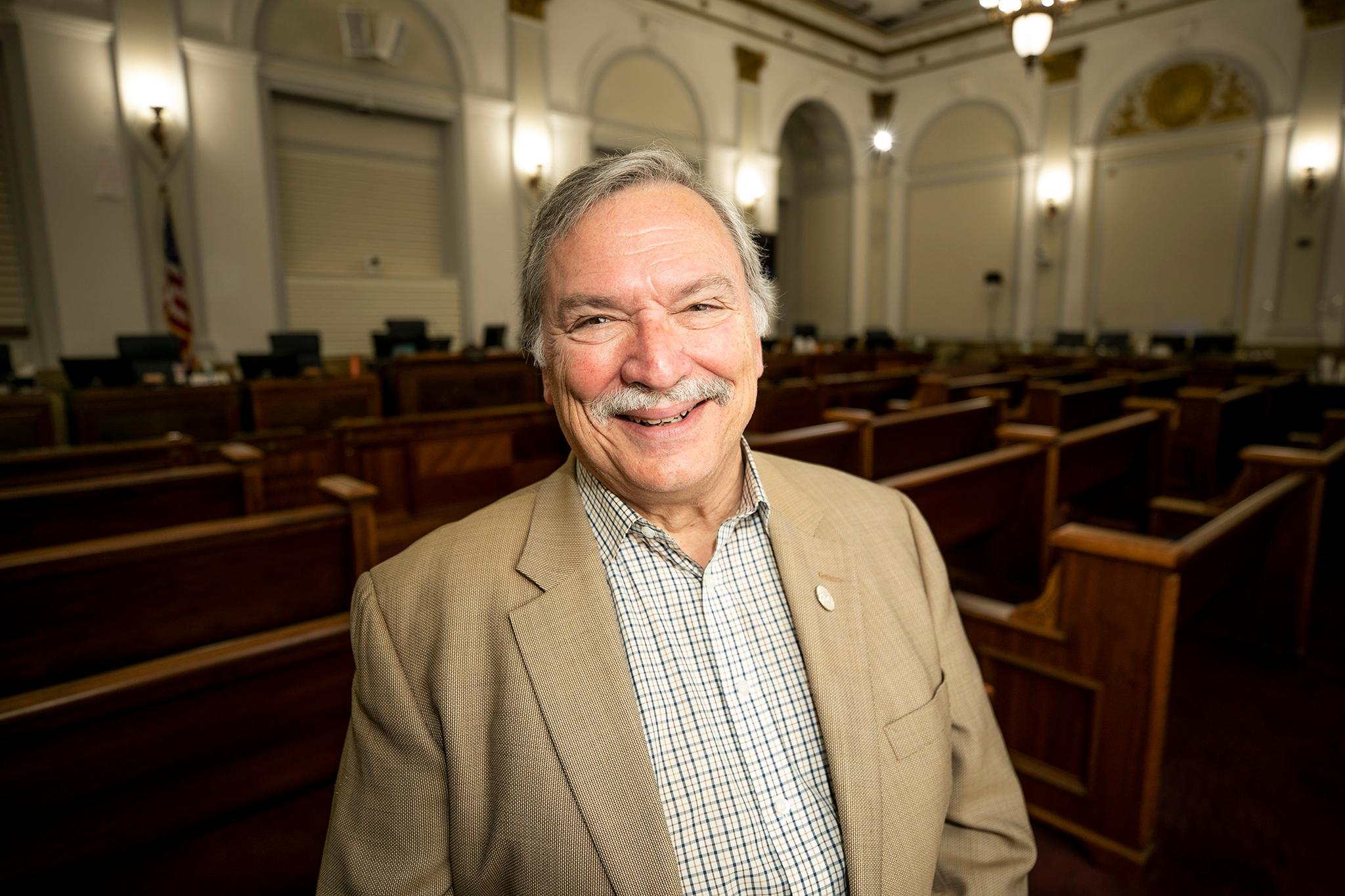A few decades ago, Councilmember Kevin Flynn covered the very office he now holds, as a journalist for the Rocky Mountain News. He's spent the past eight years serving on City Council rather than writing about it, representing District 2 in southwest Denver.
"I've been involved in my community for 40 years," Flynn said, adding that he "got to know the city very well" during his time as a reporter.
In 2019, Flynn ran unopposed. This year, he's running for his third and final term against Tiffany Caudill and Chris Herr.
While many candidates across the city have talked housing, housing and more housing, Flynn stands out as a voice for more cautious development in District 2.
Flynn said he supports a range of mixed-income and affordable housing efforts, including at the Loretto Heights Campus redevelopment in his district, and through things like rent assistance, land banks, home ownership programs and mandatory affordable housing in new multi-family buildings.
But he has more skepticism about citywide approaches like upzoning for duplexes, Accessory Dwelling Units (ADUs) and other forms of "gentle density." And while he's not opposed to large apartment developments, he supports caution and restriction on what can be built where.
"The next four years is going to involve major pushback on such initiatives as what they call gentle density," Flynn said. "Eliminating single-family zoning -- that would destroy southwest Denver. And I'm the only candidate speaking out against that right now."
Flynn said his approach comes from worries about gentrification in his district, something that has hit many other parts of Denver hard. While replacing a bungalow with a duplex might double the amount of housing on a given lot, Flynn said he worries about how that new-build duplex would go for a lot more money than the older house that existed before, and raise property values along the block, pushing people out. But advocates for gentle density argue that the only solution to a housing shortage is to build more housing, and that renters would get priced out as property values rise anyway.
Flynn has similar worries about ADUs. He said he's open to adopting standards for ADUs and allowing them on lots "that can reasonably accommodate them," but worries that a property with an ADU would raise property values and be unaffordable for a future buyer down the line. Since District 2 is more residential, Flynn also has concerns about doubling housing in neighborhoods without close access to public transit, growing reliance on cars. Plus, he worries about changing the character of southwest Denver's current suburban zoning.
"We will take our growth, but where we planned it," he said. "I'm not insisting that the Central Business District has to clear a block and put up some single family homes on one block to make a complete neighborhood downtown, so don't come down here and tell me I have to have high rises."
In addition to his approach to housing, Flynn wants to focus on public safety, mobility and sustainability if elected to a third term.
He's proud of Council's work with safe outdoor spaces and the Support Team Assisted Response Program (STAR), which dispatches mental health clinicians instead of police to people in nonviolent crises. He also wants Denver to expand its diversion center, which sends people to support services rather than jail. He supports maintaining the camping ban and worries about staffing issues in the police department.
On climate, Flynn wants to speed up electrification by subsidizing electric conversion in older homes and promoting development projects near transit. He hopes to expand the microtransit pilot program to southwest Denver, providing free, on-call rides in certain neighborhoods, and grow public transit, bike and pedestrian networks.
During his time on Council, Flynn said his goal has been to improve southwest Denver representation in city government.
He pointed to work helping residents become represented by Registered Neighborhood Organizations and getting southwest community members appointed to boards and commissions.
Flynn said he's also excited to see a performing arts center in the district, after voters approved a 2021 ballot measure that included funding to restore the May Bonfils Stanton Theater at the Historic Loretto Heights campus.
"I grew up in community theater," Flynn said. "I was an introvert, believe it or not. Being on stage really brought me out of my shell and is in large part responsible for where I am today... It's gonna be a life changer for a lot of young kids out there who don't quite know where they fit in."
Looking to a potential third term, Flynn wants to continue improving civic engagement and representation in southwest Denver.
"I ran for this office to try to get southwest Denver the things that it needs because I believe southwest Denver has not been fully involved in civic affairs," he said. "This city's generally been run by neighborhoods east of the river. Let's be frank about it. So I've managed to get more people from southwest Denver. No matter where they are on the political spectrum, I don't care, I just want your voices heard."












